 Libby Hague, Pattern Recognition, 2017, installation view at loop Gallery. Courtesy of loop Gallery
Libby Hague, Pattern Recognition, 2017, installation view at loop Gallery. Courtesy of loop Gallery
One of the most fascinating aspects of Libby Hague’s Pattern Recognition is that it is not complete without the viewer. Hague’s exhibit, governed by notions of play, cannot exist without the viewer’s participation and cannot be complete without this integral element. Hague’s works are created from various forms of cardboard, paint, string, and other accouterments. Evocative of colourful musical instruments and toys, the works foster an experience of sensory overload for the viewer. Thus, just as Hague has synthesized materials such as honeycomb cardboard and string to create an ostensible musical instrument, so too is the viewer invited to synthesize the sensory overload and engage with its variegated elements.
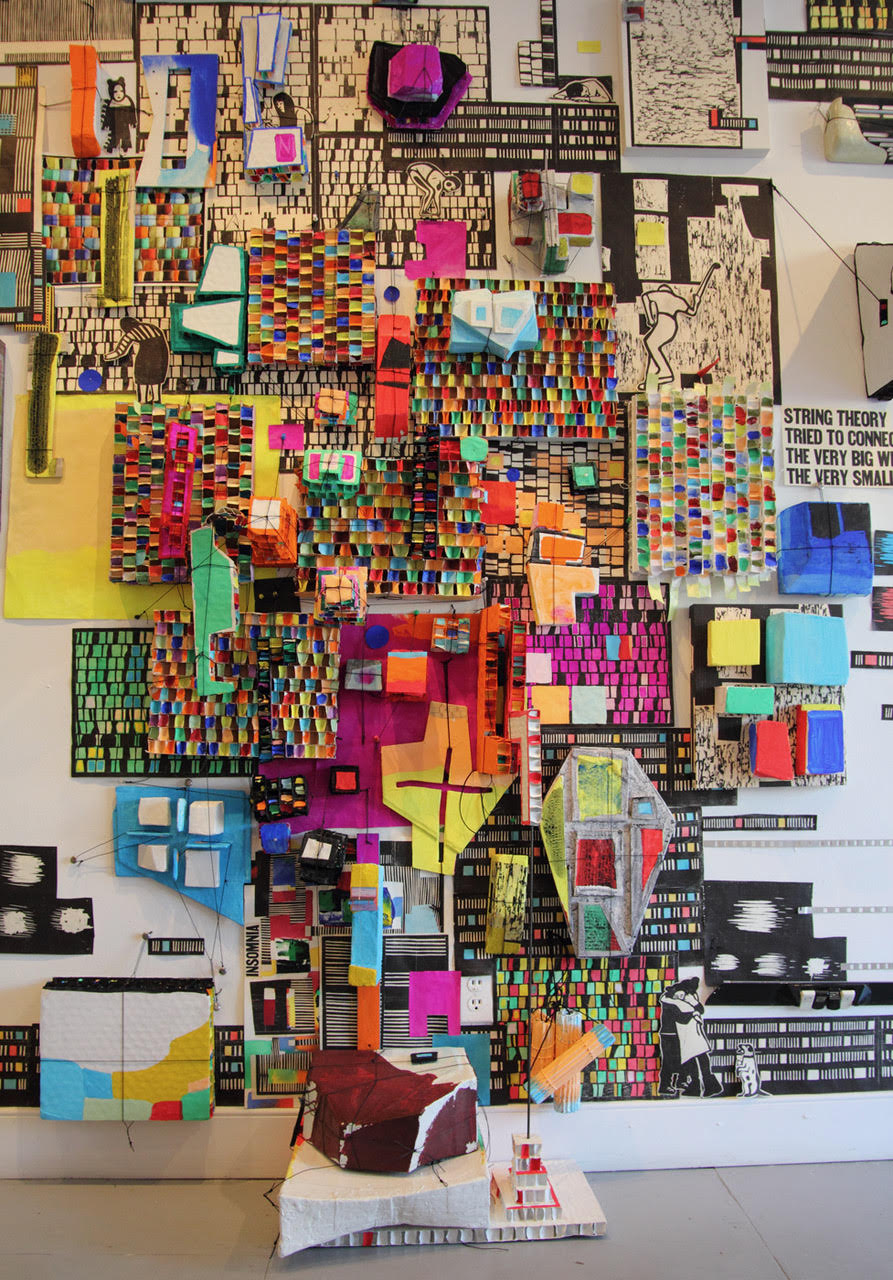 Libby Hague, Pattern Recognition, 2017, installation view at loop Gallery. Courtesy of loop Gallery
Libby Hague, Pattern Recognition, 2017, installation view at loop Gallery. Courtesy of loop Gallery
The exhibit is designed to be accessible to all viewers, as well as to be anchored in its own reality. Hague’s works, which span the main wall at loop Gallery, deliberately extend to the floor, appealing to viewers of all ages. In fact – as Gallery Manager, Kelly McKenzie reminded me – Hague even scheduled a “Playdate” (Sunday, January 15, 2017) designed to facilitate viewers’ playing with the works. While some of the works cannot be touched, the exhibit is motivated by its desire to connect with the audience through tactile and spatial engagement. The positioning of the works within the space invites children to experience them, as does the exhibit’s brilliant colouring. Some works even hang in front of the window; so, the viewer experiences them before the backdrop of Dundas Street West, further situating the works in the gallery space as well as grounding the viewing experience in the present time and place.
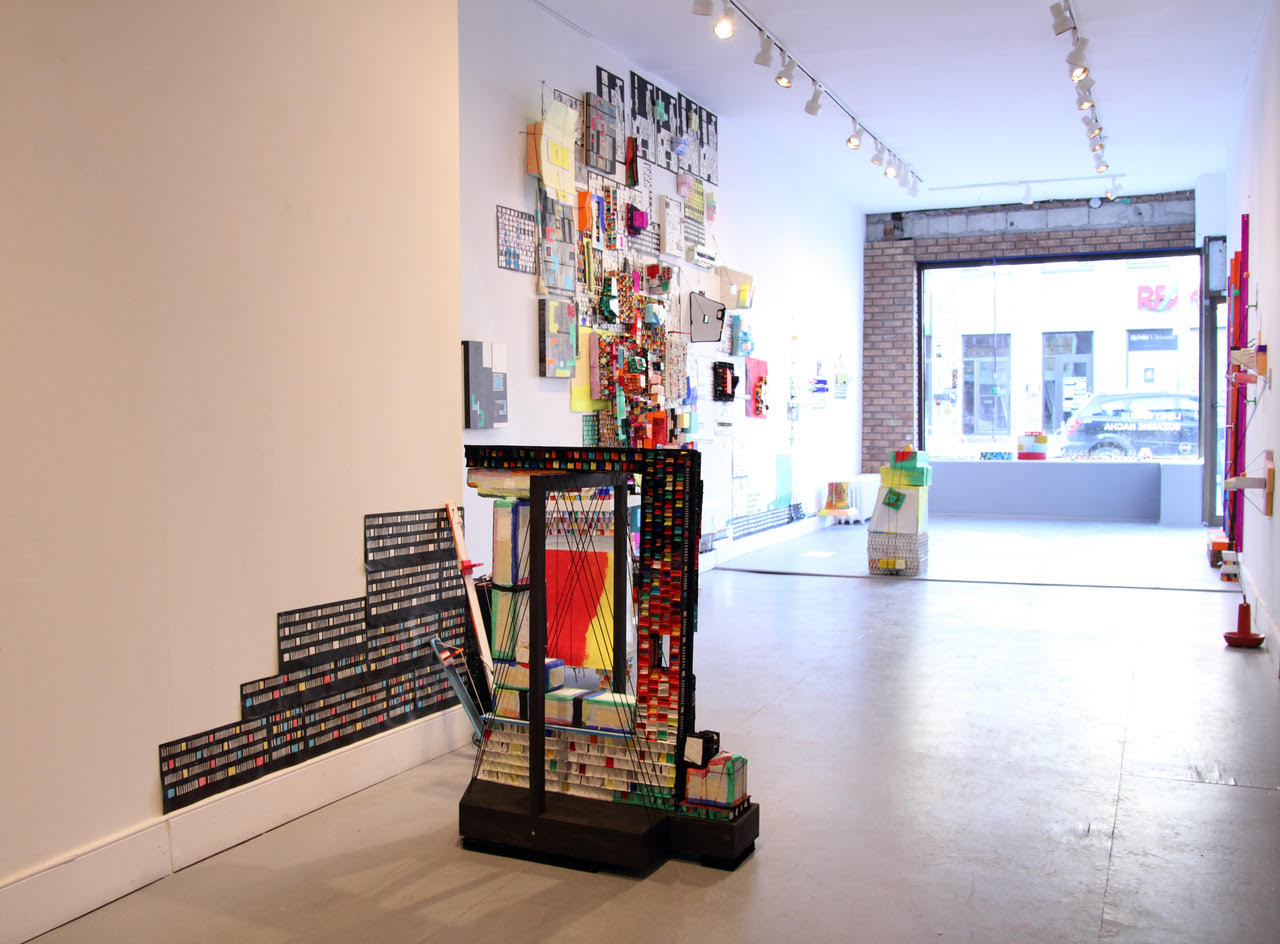 Libby Hague, Pattern Recognition, 2017, installation view at loop Gallery. Courtesy of loop Gallery
Libby Hague, Pattern Recognition, 2017, installation view at loop Gallery. Courtesy of loop Gallery
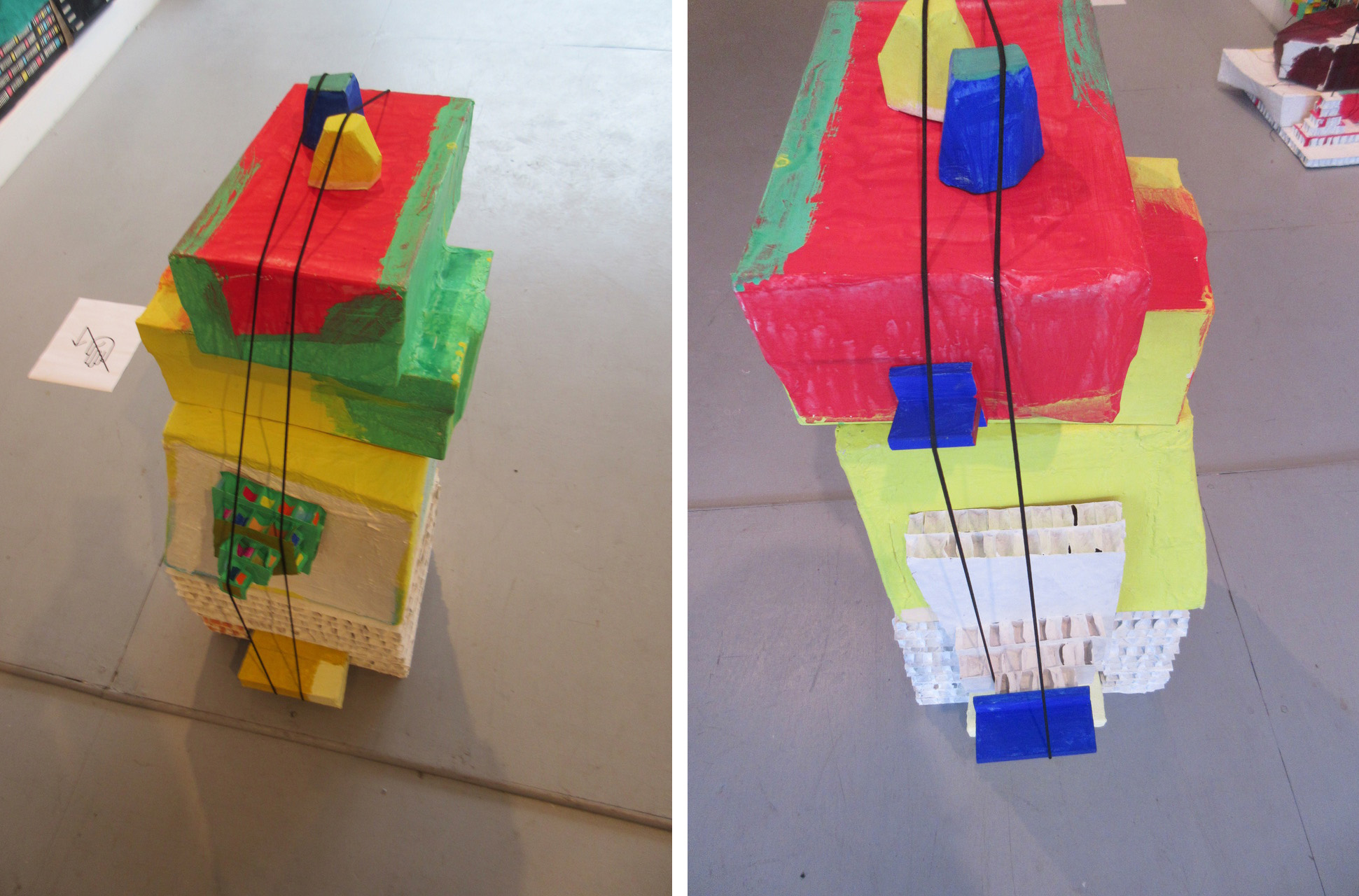 Libby Hague, Pattern Recognition, 2017, installation view at loop Gallery. Photo: Laura Hutchingame
Libby Hague, Pattern Recognition, 2017, installation view at loop Gallery. Photo: Laura Hutchingame
Hague’s emphasis on structure is particularly interesting. The act of structuring and restructuring is central to the works, and, in a sense, this mimics the cognitive restructuring the viewer must engage in. The goal is synthesis. Just as the “instruments” are created with strings designed to mimic authentic musical strings, the strings themselves remain inauthentic. Similarly, the honeycomb cardboard evokes, but is not, an accordion. Following Hague’s theme, however, it is not about the authenticity of the individual components; rather, it is about what these individual components create together. Are these “instruments,” which function as instruments and contain the same elements as instruments, not instruments? Hague privileges the composite work and its promotion of play. After all, if the composite work can accomplish this fundamental goal, the individual components become less relevant.
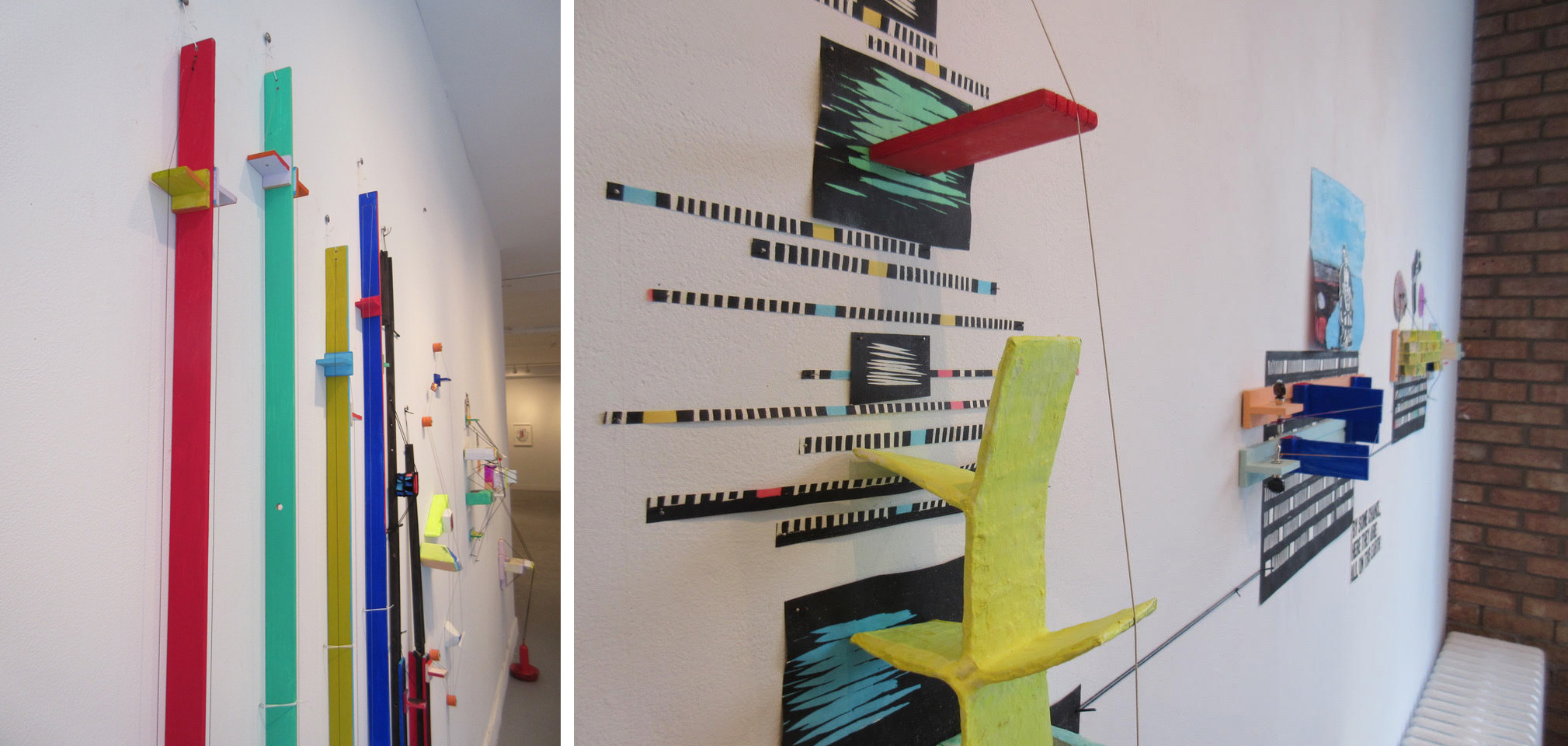 Libby Hague, Pattern Recognition, 2017, installation view at loop Gallery. Photo: Laura Hutchingame
Libby Hague, Pattern Recognition, 2017, installation view at loop Gallery. Photo: Laura Hutchingame
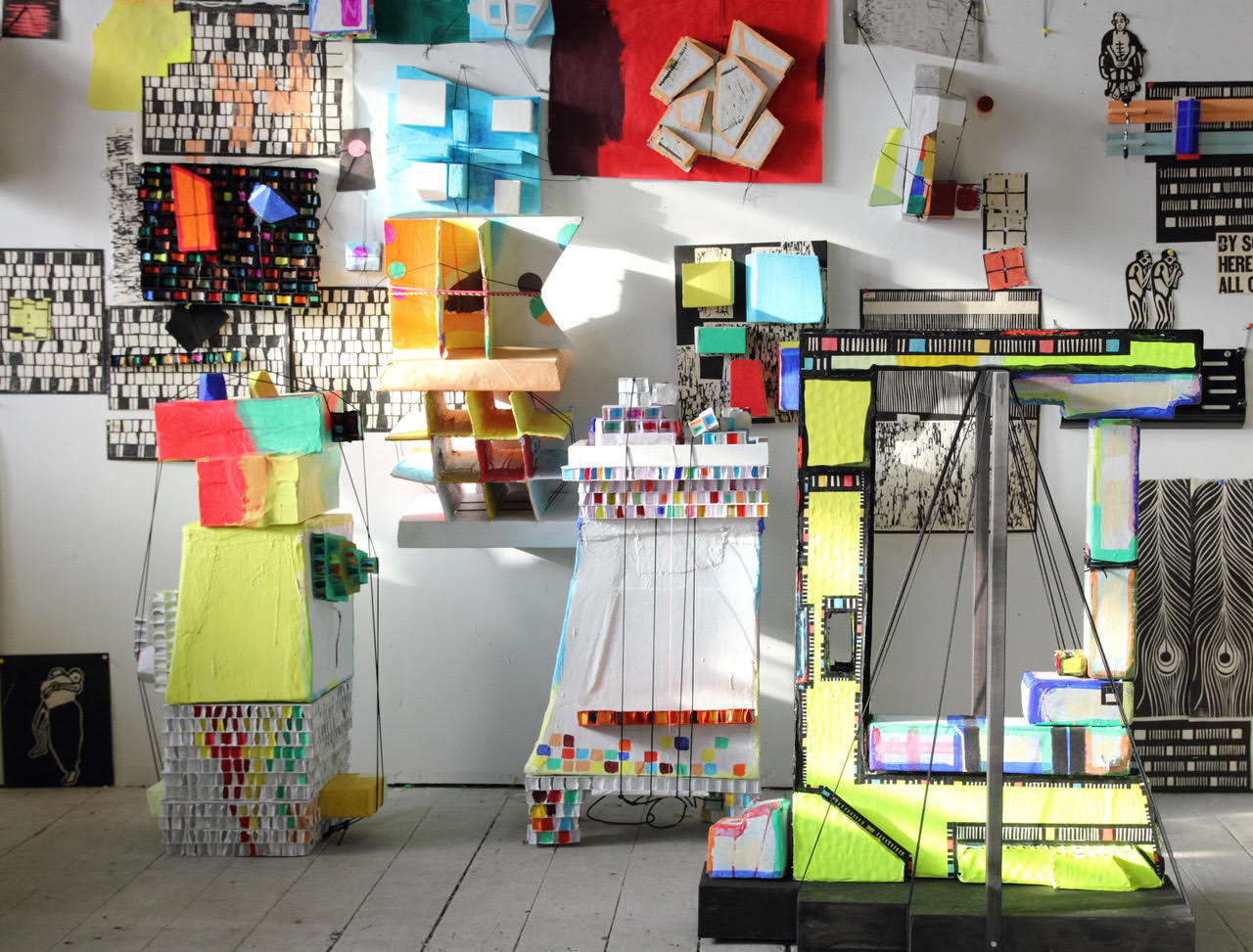 Libby Hague, Pattern Recognition, 2017, installation view at loop Gallery. Courtesy of loop Gallery
Libby Hague, Pattern Recognition, 2017, installation view at loop Gallery. Courtesy of loop Gallery
While meditating on the exhibit, I was most struck by the relationship of the works themselves to the loop Gallery space. Given that structure was central to the exhibition, I asked McKenzie: “How much do you think the structure of the exhibit was dictated by the gallery space itself?.” McKenzie’s response profoundly illuminated the works for me, emphasizing that the specialty of Hague’s exhibition is its ability to be in any space. The brilliance of Pattern Recognition, then, must be its offering of the chance experience that cannot be replicated anywhere else as well as its inclusive embrace of the unique. Pattern Recognition makes us stop, look and, above all, play in the instant we inhabit.
Laura Hutchingame
*Exhibition information: December 31, 2016 – January 22, 2017, loop Gallery, 1273 Dundas Street West, Toronto. Gallery hours: Wed – Thur 12 – 5, Fri -Sat 12 – 6, Sun 1 – 4 pm.
